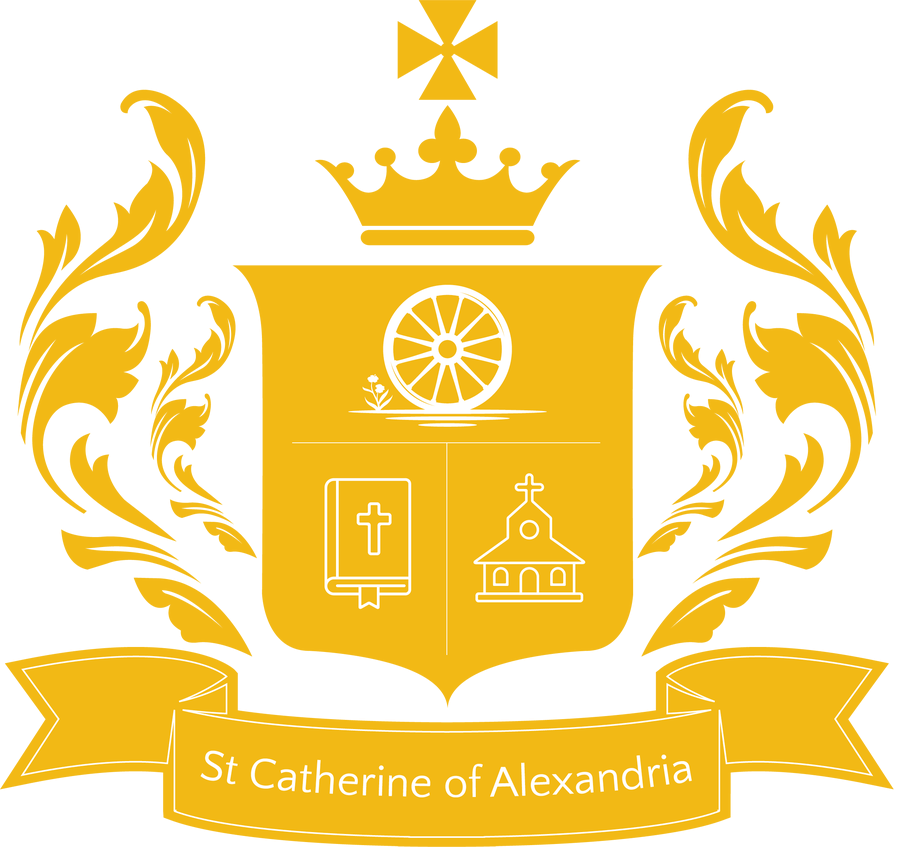House Saints
All children from Reception Class (summer term) to Yr 6 are allocated to a House at Our Lady of Lourdes. The children are put into their Houses for in-school competitions, including Sports Day at the end of the summer term. Each has two Year 6 House Captains, who are voted for by the Year 6 class at the start of the school year. The House Captains help to organise their teams and are role models for the other children in school. During assemblies throughout the year they are required to report to the rest of the school on competitions and successes. Each Term there is a prize for the Team with the most points.
There are four Houses:

Catherine was a Christian maiden of Alexandria in Egypt. She rebuked the heathen emperor Maxentius for his idolatry, and he responded by offering to marry her if she would renounce her faith. She refused. Fifty philosophers were set to disprove her in a public debate. She easily won, and made them look foolish. The emperor then had them burned alive. The emperor went out of town, and when he returned, he discovered that Catherine had converted his queen and the 200 soldiers of the empress's bodyguard. He had the Empress and her soldiers put to death. Catherine was sentenced to be tortured on a spiked wheel, but the wheel flew apart and the fragments killed many of her accusers. After this, Catherine was beheaded, and from her veins; flowed not blood but milk. The feast day of St Catherine is November 25th.

Thomas Aquinas was born of noble parents at Aquino in Italy, in 1226. At the age of nineteen he received the Dominican habit at Naples, where he was studying. Seized by his brothers on his way to Paris, he suffered a two years’ captivity in their castle of Rocca-Secca; but neither the caresses of his mother and sisters, nor the threats of his brothers, could shake him in his vocation. While St. Thomas was in confinement at Rocca-Secca, his brothers endeavoured to entrap him into sin, but the attempt only ended in the triumph of his purity. Having at length escaped, St. Thomas went to Cologne to study under Blessed Albert the Great, and after that to Paris, where for many years he taught philosophy and theology. The Feast Day of Saint Thomas Aquinas is March 7th.

Francis was born in Assisi, Italy in 1182. He grew up leading a privileged life as the son of a wealthy cloth merchant. Francis began to see visions from God that changed his life. He heard God tell him to "repair my church, which is falling in ruins." So Francis gave all his money to the church. His father became very angry with him resulting in him leaving his father's home and taking a vow of poverty. As Francis lived his life of poverty and preached to people about the life of Jesus Christ, others began to follow him. He had one basic rule which was "To follow the teachings of our Lord Jesus Christ and to walk in his footsteps". Francis is best known for his love of nature and animals. It is said that one day he was talking to some birds when they began to sing together. They then flew into the sky and formed the sign of a cross. The Feast Day of St Francis is October 4th.

St John Bosco is remembered as a man who dedicated his life to the service of abandoned young people. Over 150 years ago he challenged the way young people were treated in the desperate poverty that existed at that time in the city of Turin, Italy. He was driven by first-hand experience of the effects of dreadful poverty and hunger on the young people he came across, he was determined to change their condition. Others were inspired to follow him in responding to the needs of the young. John Bosco created an order in the Catholic Church, called the Salesians. They were founded in the poverty of a city we consider to be one of the most prosperous in the world today. The feast day of St John Bosco is January 31st.




